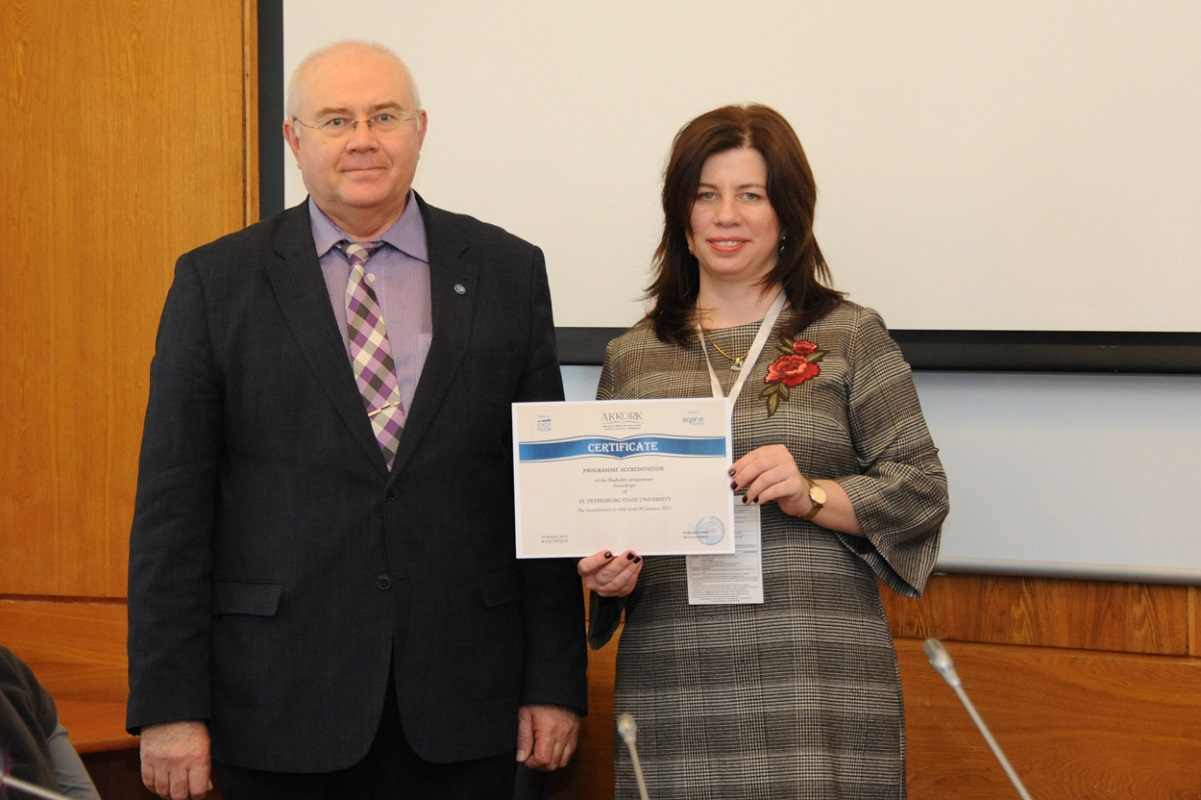St Petersburg University programmes have obtained international and professional public accreditation

The award ceremony for certificates of international and professional public accreditation has been held at St Petersburg University. Following evaluations, the bachelor’s and master’s programmes in “Sociology” and “Social Work” were accredited until 2023.
Aleksandr Babich, Deputy Senior Vice-Rector for Education, indicated in his presentation that certification has positive implications for positioning the University in the international market for educational services: ‘This competitive edge is essential for foreign applicants who have to make a choice between the various universities of the Russian Federation’. Aleksandr Babich also acknowledged the work of programme coordinators. The expert review took almost half a year and resulted in positive evaluations and accreditation for the maximum possible period.
The accreditation procedure was carried out in accordance with international rules and regulations, primarily with European standards and guidelines developed by E4-Group. It comprises: the European Association for Quality Assurance in Higher Education (ENQA); the European University Association (EUA); the European Association of Institutions in Higher Education (EURASHE); and the European Students’ Union (ESU). ‘The Agency for Quality Assurance in Higher Education and Career Development (AKKORK) is a full member of the European Association of Institutions in Higher Education (EURASHE). It is registered with the European Register, and its certificates are equivalent to those of Western European institutions of higher education and conform to the international standards of education. They are also recognised by foreign students and employers,’ said Erika Soboleva, Director-General of AKKORK.
Teaching staff and students work as a dedicated team and it is in everyone’s interest to ensure the highest level of education and self-fulfilment of students in their future profession.
Erika Soboleva, Director-General of AKKORK
Coordinators of academic programmes thanked the members of the AKKORK working group for their professionalism. ‘We have received recommendations and we will certainly take the necessary steps to implement them. In fact, some of the identified problems were addressed before the accreditation in a proactive manner,’ said Aleksandr Petrov, professor of St Petersburg University.
According to Professor Aleksandr Golovin, international certificates are very important for students: ‘We are all working together for the future, for the benefit of our students and their career. Students are watching very closely the level of educational programmes; and this international accreditation is what attracts them.’

